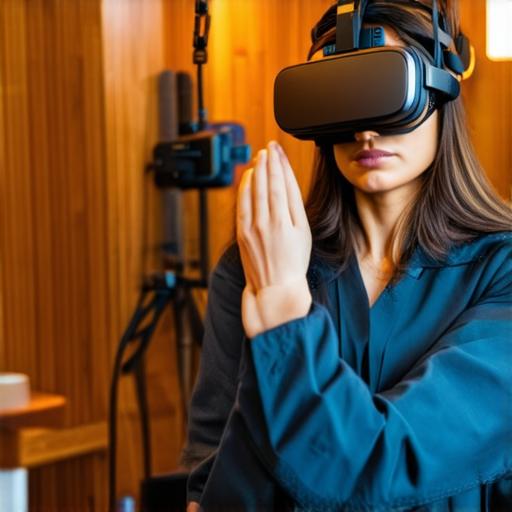
Virtual reality therapy immerses patients in past traumatic experiences. Here’s why many endorse it.
Introduction
Trauma can have a profound impact on a person’s mental health and well-being. For many individuals, simply recalling traumatic experiences can be overwhelming and trigger intense emotions. This is why virtual reality (VR) therapy has become an increasingly popular option for treating trauma-related disorders.
Why Virtual Reality Therapy Works
Virtual reality therapy works by creating a simulated environment that allows patients to experience their past traumatic experiences in a controlled and safe setting. By re-experiencing these experiences, patients can begin to identify and challenge negative thought patterns and beliefs that may have been reinforced by their past experiences. This process of cognitive restructuring is critical for overcoming trauma-related disorders.

The Benefits of Virtual Reality Therapy
Virtual reality therapy has been shown to be an effective treatment option for a variety of trauma-related disorders, including post-traumatic stress disorder (PTSD), anxiety disorders, and depression. Studies have found that VR therapy can reduce symptoms of PTSD and improve overall mental health outcomes.
One of the key benefits of VR therapy is that it allows patients to confront their past traumatic experiences in a safe and controlled environment. This can help them overcome fear and avoidance behaviors, which are common symptoms of PTSD. By re-experiencing these experiences, patients can also gain a better understanding of how they were affected by the trauma and develop coping strategies for managing their emotional responses in the future.
Another benefit of VR therapy is that it can be used in conjunction with other forms of treatment, such as cognitive-behavioral therapy (CBT) and exposure therapy. By combining these approaches, patients can gain a more holistic understanding of their experiences and develop a greater sense of control over their healing process.
Conclusion
Virtual reality therapy is a promising treatment option for trauma-related disorders. By immersing patients in their past traumatic experiences, VR therapy aims to help them process and overcome their emotional responses to these events. With its level of customization and control, VR therapy can be an empowering tool for patients seeking to heal from the effects of trauma. As research continues to support the effectiveness of VR therapy, it is likely that this treatment option will become even more widely adopted in the years to come.


